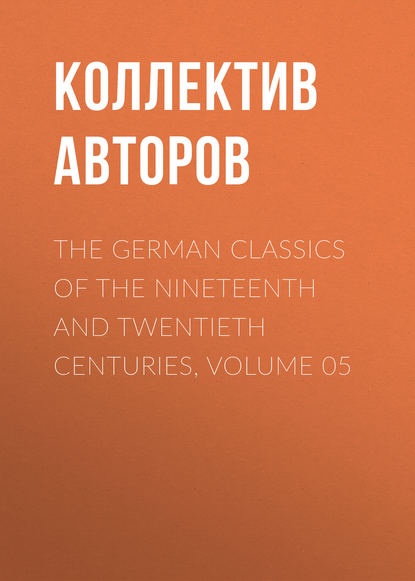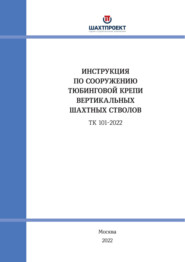По всем вопросам обращайтесь на: info@litportal.ru
(©) 2003-2024.
✖
The German Classics of the Nineteenth and Twentieth Centuries, Volume 05
Настройки чтения
Размер шрифта
Высота строк
Поля
"Well, what does she want, then?" asked the Flounder. "Alas, Flounder," said he, "my wife wants to be Emperor." "Go to her," said the Flounder; "she is Emperor already."
So the man went, and when he got there the whole palace was made of polished marble with alabaster figures and golden ornaments, and soldiers were marching before the door blowing trumpets, and beating cymbals and drums; and in the house, barons, and counts, and dukes were going about as servants. Then they opened the doors to him, which were of pure gold. And when he entered, there sat his wife on a throne, which was made of one piece of gold, and was quite two miles high; and she wore a great golden crown that was three yards high, and set with diamonds and carbuncles, and in one hand she had the sceptre, and in the other the imperial orb; and on both sides of her stood the yeomen of the guard in two rows, each being smaller than the one before him, from the biggest giant, who was two miles high, to the very smallest dwarf, just as big as my little finger. And before it stood a number of princes and dukes.
Then the man went and stood among them, and said, "Wife, are you Emperor now?" "Yes," said she, "now I am Emperor." Then he stood and looked at her well; and when he had looked at her thus for some time, be said, "Ah, wife, be content, now that you are Emperor." "Husband," said she, "why are you standing there? Now, I am Emperor, but I will be Pope too; go to the Flounder."
"Alas, wife," said the man, "what will you not wish for? You cannot be Pope; there is but one in Christendom; he cannot make you Pope." "Husband," said she, "I will be Pope; go immediately, I must be Pope this very day." "No, wife," said the man, "I do not like to say that to him; that would not do; it is too much; the Flounder can't make you Pope." "Husband," said she, "what nonsense! If he can make an emperor he can make a pope. Go to him directly. I am Emperor and you are nothing but my husband; will you go at once?"
Then he was afraid, and went; but he was quite faint, and shivered and shook, and his knees and legs trembled. And a high wind blew over the land, and the clouds flew, and toward evening all grew dark, and the leaves fell from the trees, and the water rose and roared as if it were boiling, and splashed upon the shore; and in the distance he saw ships which were firing guns in their sore need, pitching and tossing on the waves. And yet in the midst of the sky there was still a small bit of blue, though on every side it was as red as in a heavy storm. So, full of despair, he went and stood in much fear and said—
"Flounder, Flounder, in the sea,
Come, I pray thee, here to me;
For my wife, good Ilsabil,
Wills not as I'd have her will."
"Well, what does she want, then?" asked the Flounder. "Alas," said the man, "she wants to be Pope." "Go to her then," said the Flounder; "she is Pope already."
So he went, and when he got there, he saw what seemed to be a large church surrounded by palaces. Inside, however, everything was lighted up with thousands and thousands of candles, and his wife was clad in gold, and she was sitting on a much higher throne, and had three great golden crowns on, and around about her there was much ecclesiastical splendor; and on both sides of her was a row of candles the largest of which was as tall as the very tallest tower, down to the very smallest kitchen candle, and all the emperors and kings were on their knees before her, kissing her shoe. He pushed his way through the crowd. "Wife," said the man, and looked attentively at her, "are you now Pope?" "Yes," said she, "I am Pope." So he stood and looked at her, and it was just as if he was looking at the bright sun. When he had stood looking at her thus for a short time, he said, "Ah, wife, if you are Pope, do let well alone!" But she looked as stiff as a post, and did not move or show any signs of life. Then said he, "Wife, now that you are Pope, be satisfied; you cannot become anything greater now." "I will consider about that," said the woman. Thereupon they both went to bed, but she was not satisfied, and greediness let her have no sleep, for she was continually thinking what there was left for her to be.
The man slept well and soundly, for he had run about a great deal during the day; but the woman could not fall asleep at all, and flung herself from one side to the other the whole night through, thinking always what more was left for her to be, but unable to call to mind anything else. At length the sun began to rise, and when the woman saw the red of dawn, she sat up in bed and looked at it. And when, through the window, she saw the sun thus rising, she said, "Cannot I, too, order the sun and moon to rise?" "Husband," said she, poking him in the ribs with her elbow, "wake up! go to the Flounder, for I wish to be even as God is." The man was still half asleep, but he was so horrified that he fell out of bed. He thought he must have heard amiss, and rubbed his eyes, and said, "Alas, wife, what are you saying?" "Husband," said she, "if I can't order the sun and moon to rise, and have to look on and see the sun and moon rising, I can't bear it. I shall not know what it is to have another happy hour, unless I can make them rise myself."
Then she looked at him so terribly that a shudder ran over him, and said, "Go at once; I wish to be like unto God." "Alas, wife," said the man, falling on his knees before her, "the Flounder cannot do that; he can make an emperor and a pope; I beseech you, go on as you are, and be Pope." Then she fell into a rage, and her hair flew wildly about her head, and she cried, "I will not endure this, I'll not bear it any longer; wilt thou go?" Then he put on his trousers and ran away like a madman. But outside a great storm was raging and blowing so hard that he could scarcely keep his feet; houses and trees toppled over, the mountains trembled, rocks rolled into the sea, the sky was pitch black, and it thundered and lightened, and the sea came in with black waves as high as church-towers and mountains, and all with crests of white foam at the top. Then he cried, but could not hear his own words—
"Flounder, Flounder, in the sea,
Come, I pray thee, here to me;
For my wife, good Ilsabil,
Wills not as I'd have her will"
"Well, what does she want, then?" asked the Flounder. "Alas," said he, "she wants to be like unto God." "Go to her, and you will find her back again in the dirty hovel." And there they are living still at this very time.
ERNST MORITZ ARNDT
* * * * *
SONG OF THE FATHERLAND[9 - Translator: H.W. Dulcken. Permission Ward, Lock & Company, Ltd., London.] (1813)
God, who gave iron, purposed ne'er
That man should be a slave;
Therefore the sabre, sword, and spear
In his right hand He gave.
Therefore He gave him fiery mood,
Fierce speech, and free-born breath,
That he might fearlessly the feud
Maintain through blood and death.
Therefore will we what God did say,
With honest truth, maintain—
And ne'er a fellow-creature slay,
A tyrant's pay to gain!
But he shall perish by stroke of brand
Who fighteth for sin and shame,
And not inherit the German land
With men of the German name.
O Germany! bright Fatherland!
O German love so true!
Thou sacred land—thou beauteous land—
We swear to thee anew!
Outlawed, each knave and coward shall
The crow and raven feed;
But we will to the battle all—
Revenge shall be our meed.
Flash forth, flash forth, whatever can,
To bright and flaming life!
Now, all ye Germans, man for man,
Forth to the holy strife!
Your hands lift upward to the sky—
Your hearts shall upward soar—
And man for man let each one cry,
Our slavery is o'er!
Let sound, let sound, whatever can
Trumpet and fife and drum!
This day our sabres, man for man,
To stain with blood, we come;
With hangman's and with coward's blood,
O glorious day of ire
That to all Germans soundeth good!—
Day of our great desire!
Let wave, let wave, whatever can—
Standard and banner wave!
Here will we purpose, man for man,
To grace a hero's grave.
Advance, ye brave ranks, hardily—
Your banners wave on high;
We'll gain us freedom's victory,
Or freedom's death we'll die!
* * * * *
UNION SONG[10 - Translator: Margarete Münsterberg.] (1814)
This blessed hour we are united,
Of German men a mighty choir,
And from the lips of each, delighted,
Our praying souls to heaven aspire;
With high and sacred awe abounding

















